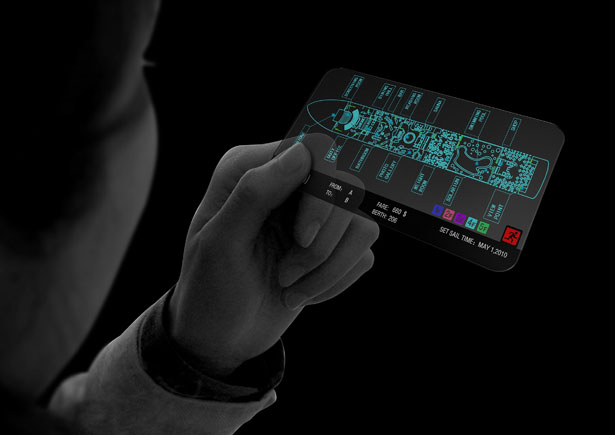加洲新法关于设么是电子票
THE WALL STREET JOURNAL
- MEDIA & MARKETING
- Updated April 23, 2013, 7:30 p.m. ET
Scalpers Beware: New Laws Redefine What Is a Ticket
By HANNAH KARP
![[image]](http://si.wsj.net/public/resources/images/MK-CC661_PAPERL_F_20130423161216.jpg) Michael Ochs Archives/Getty Images
Michael Ochs Archives/Getty Images
Is a ticket a ‘license’ or ‘property’? Two companies do battle.
In the battle between the scalpers and concert promoters, chalk one up for the promoters.
California lawmakers on Tuesday voted to preserve one of the live-music industry’s most divisive technologies: paperless tickets—which can be redeemed only at the venue, only by the purchaser.
The preliminary vote is seen a blow to StubHub, a ticket reseller owned by eBay Inc.,EBAY +0.78% which has been locked in a battle with Ticketmaster over paperless tickets. Ticketmaster is owned by concert promoter Live Nation Entertainment Inc.LYV -0.24%
Behind the fight is an industry in turmoil. As technology changes the way fans buy tickets, scalping has become more lucrative—and sophisticated—leaving traditional concert promoters struggling to capture the gains going to the secondary market.
Live Nation recently introduced a dynamic pricing process to help make up the difference, but the company says it’s still up to the artists whether to use the airline-style pricing system.
Because paperless tickets can’t be transferred or resold, StubHub says they are a threat to its business of reselling tickets in the secondary market.
![[image]](http://si.wsj.net/public/resources/images/MK-CC665_PAPERL_NS_20130423180926.jpg)
Framed as a way to protect rights of ticket holders, the original bill would have banned paperless tickets. But due to fierce opposition from committee members in a hearing Tuesday, the bill was heavily amended and now leaves the door open for paperless ticketing to proliferate. The new version passed by a committee vote simply penalizes the use of the software some scalpers use to gobble up tickets before fans get a chance.
The vote came after a hearing that centered on a philosophical debate over the question of ticket “ownership.” Live Nation’s camp argued that ticket holders don’t “own” their seats; tickets are just a license to occupy the space for several hours, which venues can revoke for bad behavior.
But StubHub and its supporters say ticket holders own the rights to their tickets until they walk in the arena door, at which moment the revocable license kicks in.
“Until that point they own the rights to the ticket and therefore should be able to sell them,” said StubHub spokesman Glenn Lehrman said. “It [was] really a property rights bill.”
Tuesday’s move applies only to ticket sales in California, but potentially sets a precedent that could hurt StubHub’s ongoing efforts in other states. New York is the only state with a law that restricts paperless ticketing. A proposed ban on paperless ticketing is making headway in New Jersey but not yet written into law. California’s preliminary vote still has to be approved by the full California legislature and the governor.
California assemblyman Richard Pan, who sponsored the original bill, which would have banned California venues from offering paperless tickets, said he was disappointed that the paperless-ticket ban was struck down—but not surprised.
“These organizations make a lot of money and [are] interested in making more—and they’re going to leverage their relationships with artists and venues to come out and oppose the bill,” said Mr. Pan. “That makes it very difficult.”
A Live Nation spokeswoman said the vote was “a great victory for California fans,” but added that the war wasn’t over yet. “We don’t underestimate the resources that the big scalping lobby will bring to bear to attach pro-scalping language to any piece of legislation moving forward,” said the spokeswoman, Jacqueline Peterson.
The dueling companies have been at war since 2010, when New York banned venues from issuing them without also offering transferable alternatives.
Since then, nonprofit activist fan groups funded by Live Nation and StubHub have been sparring over similar proposed legislation in states from Minnesota to Florida, and the battle has become so contentious recently that Tennessee lawmakers earlier this year decided to shelve a bill supported by Live Nation that would have codified a venue’s right to issue tickets however it wants.
Only about 0.1% of tickets sold today are paperless—a term that refers to tickets that can’t be transferred or sold to someone else. Upon arriving at the show, concert-goers who have paperless tickets swipe their credit cards and show ID at the entrance.
Digital tickets, which can be scanned from a smart phone, don’t use paper either, but StubHub doesn’t consider those problematic by because they can be resold and used by anyone.
Despite their minuscule market share, restricted paperless tickets could grow more prevalent in coming years, hurting resellers, said StubHub President Chris Tsakalakis.
Paperless tickets have several advantages, aside from being impossible to lose or forget at home. For superstar acts who want to a certain number of tickets to their shows to remain affordable, paperless ticketing ensures some tickets stay at face-value rather than getting bid up into the stratosphere on the secondary market.
Live Nation Entertainment says it lets the artists and venues choose what type of tickets to issue, and only a handful in recent years, like Radiohead, have opted to issue paperless-only tickets for their shows.
Live Nation says it doesn’t want to eliminate transferable tickets altogether because it operates its own resale site, Tickets Now. It plans to integrate Tickets Now into its primary Ticketmaster site this summer to draw more fans, many of whom now visit the better-known StubHub first.
—Greg Bensinger contributed to this article.
Write to Hannah Karp at [email protected]





